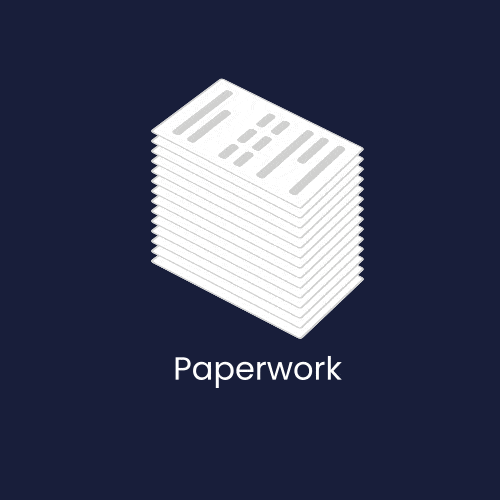The pharmaceutical industry relies heavily on efficient logistics, particularly in the final phase of last mile delivery. This critical phase determines whether medical supplies reach healthcare providers and patients on time, affecting patient care. Implementing a robust Last Mile Transport Management System (TMS) with capabilities like route optimization and intelligent delivery planning is essential for overcoming the unique challenges of pharmaceutical logistics.
Challenges in Pharmaceutical Industry Logistics
The pharmaceutical supply chain faces numerous logistical hurdles that can compromise the timely and safe delivery of critical medical supplies. The sensitivity of pharmaceutical products, combined with strict regulatory requirements and complex distribution networks, necessitates a specialized approach to last mile delivery. Factors such as fluctuating demand, unexpected disruptions, and limited infrastructure in remote areas further complicate logistics for the industry. Here are some of the key challenges:
⦁ Temperature Sensitivity:
Many pharmaceutical products require specific conditions, including temperature control, which makes last mile delivery particularly challenging. Any deviation during this phase can lead to product spoilage or loss of efficacy, necessitating robust route planning software and real-time monitoring to ensure safe delivery.
⦁ Compliance & Regulatory Requirements:
Strict regulations such as Good Distribution Practices (GDP) must be adhered to throughout the supply chain. nuVizz Last Mile Delivery solutions help automate compliance checks and maintain accurate records to meet these regulatory demands.
⦁ Supply Chain Visibility:
Limited visibility across the supply chain can lead to delayed deliveries and stockouts. Utilizing a comprehensive Transport Management System can provide real-time tracking and insights into delivery status, enabling better decision-making.
⦁ Geographical Barriers:
Delivering to remote or underserved areas presents logistical challenges that can be mitigated with intelligent route optimization and RoboDispatch (Automatic) Solutions that dynamically assign and manage delivery routes for maximum efficiency.
How to Overcome Pharmaceutical/Medical Industry Challenges
Overcoming the logistical challenges in the pharmaceutical industry requires a multifaceted approach that leverages advanced technology, strategic planning, and robust partnerships. By implementing a comprehensive Transport Management System (TMS), pharmaceutical companies can gain real-time visibility, optimize routes, and ensure regulatory compliance. Utilizing tools like route optimization software and Robo Dispatch Solutions can significantly reduce delivery times, lower costs, and enhance overall supply chain efficiency. Here’s a deeper look into specific strategies:
⦁ Advanced Temperature-Controlled Logistics:
Pharmaceutical products, especially biologics, vaccines, and other temperature-sensitive items, require meticulous handling throughout the supply chain. Implementing IoT-enabled sensors and real-time monitoring tools is crucial to maintaining the desired temperature range during transit. These sensors provide continuous visibility into the condition of the products, sending alerts in case of any temperature deviations. Combining these tools with robust route planning software enables companies to select the fastest and most efficient routes that maintain required conditions, reducing the risk of spoilage or degradation. This approach not only ensures product safety and efficacy but also builds trust with customers by ensuring that deliveries meet strict quality standards.
⦁ Enhance Regulatory Compliance:
The pharmaceutical industry is governed by numerous local, national, and international regulations that require comprehensive documentation and meticulous tracking of shipments. A well-designed Last Mile Transport Management System can automate these processes, from generating necessary documentation to tracking shipments in real time. Automating compliance-related tasks reduces the risk of human error, ensures adherence to Good Distribution Practices (GDP), and minimizes delays at customs and other checkpoints. Furthermore, such a system can quickly adapt to changing regulations, helping companies stay compliant with minimal disruption to their operations.
⦁ Improve Supply Chain Visibility:
Visibility across the entire supply chain is critical for managing inventory, reducing waste, and predicting potential delays. Deploying a solution like nuVizz Last Mile TMS offers real-time tracking of shipments, providing stakeholders with precise updates at every stage of the delivery process. This capability enables pharmaceutical companies to respond proactively to unexpected challenges, such as traffic congestion or vehicle breakdowns, ensuring that products reach their destination on time and in optimal condition. Additionally, real-time visibility allows for better coordination between manufacturers, distributors, and retailers, optimizing inventory management and reducing stockouts or overstock situations.
⦁ Leverage Strategic Partnerships and Technologies:
Forming strategic partnerships and leveraging innovative technologies can help pharmaceutical companies overcome geographical barriers and logistical challenges. Utilizing technologies like RoboDispatch Solutions allows for dynamic route adjustments based on real-time conditions, such as traffic, weather, and delivery capacity. This dynamic routing ensures that deliveries are optimized for speed and efficiency, minimizing delays and reducing costs. Moreover, incorporating crowdsourced delivery options can expand the reach of delivery networks, particularly in remote or hard-to-access areas, further enhancing delivery speed and reliability.
How nuVizz Last Mile Delivery TMS Helps Pharmaceutical Industries
nuVizz provides a specialized solution for the unique challenges of pharmaceutical logistics, ensuring the safe, timely, and compliant delivery of critical medical supplies. Our Last Mile Transport Management System (TMS) integrates real-time visibility, intelligent route planning, and advanced analytics to optimize every aspect of the distribution process. From reducing operational costs to enhancing service reliability, nuVizz enables pharmaceutical companies to streamline their supply chain through features like the Marketplace, which aligns supply with demand, and RoboDispatch Solutions, which automate decision-making for efficient delivery routes. These capabilities foster a more efficient, compliant, and cost-effective last-mile delivery ecosystem tailored to the healthcare sector’s needs.
⦁ Visibility Across the Medical Supply Chain:
nuVizz’s Last Mile TMS offers end-to-end visibility across the supply chain, from manufacturers to the final customer, a critical component in maintaining product integrity and compliance in the pharmaceutical sector. Our Marketplace feature dynamically matches supply with demand by efficiently utilizing carrier partners or crowdsourced drivers, reducing the risk of delays and ensuring that deliveries reach their destinations on time. This is complemented by advanced route optimization, which helps drivers navigate through the most efficient paths, minimizing delivery times and enhancing customer satisfaction. With real-time tracking and monitoring, stakeholders at every level—manufacturers, stockists, retailers, and customers—gain actionable insights, enabling proactive decision-making and mitigating potential disruptions before they impact the supply chain.
⦁ Strategize Transportation:
Strategic transportation planning is crucial in the pharmaceutical industry, where timing and temperature-sensitive deliveries can significantly impact patient outcomes and regulatory compliance. nuVizz’s LAst Mile TMS offers robust tools to help companies manage these complexities effectively. The Capacity Planning module allows businesses to optimize load distribution by forecasting demand and aligning it with available transport capacity. The Vehicle Routing module further enhances efficiency by determining the most cost-effective routes, reducing fuel consumption and delivery times while maintaining the integrity of temperature-sensitive pharmaceuticals. By minimizing storage cycles and leveraging data-driven planning, nuVizz ensures that products are delivered safely and efficiently from the first mile to the last mile, reducing waste and lowering operational costs.
⦁ C-Suite Business Metrics:
nuVizz’s Last Mile TMS provides C-suite executives with the critical business metrics needed to make informed decisions. The platform offers real-time, dashboard-level visibility into financial performance, operational efficiencies, and volume metrics segmented by geo-specific regions, distributors, stockists, or retail outlets. This granular insight helps businesses identify high-performing areas and those that require improvement, enabling a targeted approach to optimizing operations across the healthcare supply chain. With features like KPI tracking, customized reports, and predictive analytics, nuVizz empowers pharmaceutical companies to maximize resource utilization, enhance service levels, and maintain competitive advantage, all while adhering to strict regulatory standards.
Conclusion
Effective last mile delivery is a critical component of pharmaceutical logistics, impacting patient care and business efficiency. By leveraging advanced solutions like nuVizz Last Mile Delivery, pharmaceutical companies can overcome logistical challenges, optimize routes, ensure regulatory compliance, and maintain high standards of delivery performance. Embracing innovative route optimization and Robo Dispatch Solutions will be key in maintaining competitiveness and enhancing patient outcomes in the evolving healthcare landscape.

